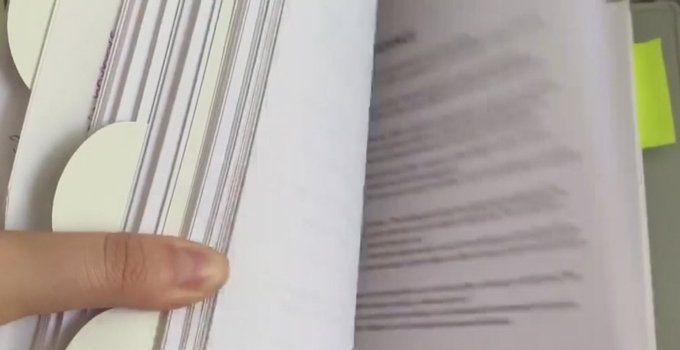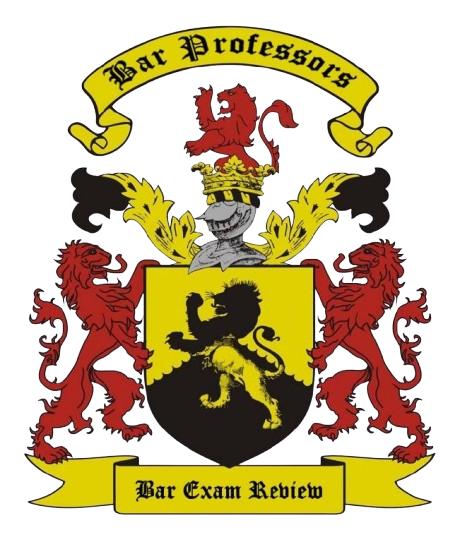Some States Consider Lowering Pass Scores on the Bar Exam
March 30, 2021
Several states are considering lowering pass scores on bar exam, making it easier to pass for students and, perhaps, addressing racial diversity problems and access-to-justice issues that have been entrenched in the legal profession.
First it was California who lowered its passing score on the bar exam. Now, Rhode Island has followed California’s lead in lowering the bar exam pass score to make the test easier to pass, a step that several other states are also considering.
The Rhode Island Supreme Court lowered the score needed to pass the bar exam from 276 to 270 and made the change retroactive to the February 2021 exam, following the recommendation of the state’s board of bar examiners.
Rhode Island’s move followed decisions by several other states to temporarily lower pass scores for the October 2020 exam. They were Washington, Oregon, North Carolina and Hawaii,. The states cited the COVID-19 pandemic as the reason for lowering the pass scores. All except Oregon extended the lower cut scores through the February 2021 exam, and Washington said it was extending the lower score at least through July.
Among the states that said they may be making some changes to their bar exams are Idaho, Texas, Arizona, Michigan, New York, Pennsylvania, Connecticut, North Carolina and Utah, Some states said they were awaiting more information before making a decision.
The passing scores are not uniform, even in the 38 states that use the UBE. The passing scores in these states range from 260 to 280. The passing score is determined by state courts and bar exam authorities.
California lowered its pass score from 1439 to 1390 in July 2020. Lowering the score by 3.5% produced a bar pass rate that was about 15% higher and saw significant changes in the racial make-up of those passing the test to become its newest lawyers. The lower pass score produced passing grades for 28.5% more Latino test-takers, for 25.8% more Asian test-takers, for 23.9% more Black test-takers, and for 20.8% more white test-takers.
Other factors may also have contributed to the jump in passage rates. California and several states that moved their tests online for the first time reported an upswing in passage rates in 2020. The multiple choice portion of the test was cut in half for the October 2020 exam to 100 questions.
Two recent, connected studies found no relationship between pass scores and the number of complaints, formal charges, or disciplinary actions taken against attorneys.
The National Conference of Bar Examiners in January recommended a restructured test with greater emphasis on lawyering skills “to better reflect real-world practice and the types of activities newly licensed lawyers perform.”

Bar Professors is offering our latest and most exciting Essay Predictions and Focus Area Blueprint for our February 2026 detailing our UBE, Florida and California essay subject predictions and the areas to focus on. You can find the essay predictions here: https://www.barprofessors.com/predictions/zoom-class This essay blueprint will be a great asset for you when you are studying for the bar exam. Bar Professors’ UBE, Florida, California Blueprint will help you pinpoint the areas you need to specifically study. Our UBE, Florida, California Blueprint will refine your studies for the last weeks of the bar exam. As you get closer to the bar exam, you need to refocus on topics and subjects that may be tested on the bar exam only. Our UBE, Florida, Nevada, California Blueprint focuses on areas highly tested, previous bar exam trends, areas tested in order of subjects and our innovative methodology for subject predictions. Bar Professors’ Blueprint for the February 2026 UBE, Florida, California Essay Prediction and Focus Area will be a great tool for you and will help you pass the bar exam.

We are offering our latest and most exciting essay blueprint detailing our UBE, Florida, and California essay subject predictions and the areas to focus on for February 2026. The Blueprints will be available on our website, www.barprofessors.com on Thursday, January 8th! Our Essay Predictions are accurate! This essay blueprint will be a great asset for you when you are studying for the bar exam. Our UBE, Florida, California Blueprint will help you pinpoint the areas you need to specifically study. Our UBE, Florida, California, Blueprint will refine your studies for the last weeks of the bar exam. As you get closer to the bar exam, you need to refocus on topics and subjects that may be tested on the bar exam only. Our UBE, Florida, Nevada, California Blueprint focuses on areas highly tested, previous bar exam trends, areas tested in order of subjects and our innovative methodology for subject predictions. Our Blueprint for the February 2026 UBE, Florida, California Essay Prediction and Focus Area will be a great tool for you and will help you

We are offering our latest and most exciting essay blueprint detailing our Florida, and California essay subject predictions and the areas to focus on for February 2026. The Blueprints are coming this week! This essay blueprint will be a great asset for you when you are studying for the bar exam. Our Florida, UBE and California Blueprint will help you pinpoint the areas you need to specifically study. Our Florida, UBE and California Blueprint will refine your studies for the last weeks of the bar exam. As you get closer to the bar exam, you need to refocus on topics and subjects that may be tested on the bar exam only. Our Florida, UBE and California Blueprint focuses on areas highly tested, previous bar exam trends, areas tested in order of subjects and our innovative methodology for subject predictions. Our Blueprint for the February 2026 Florida, UBE and California Essay Prediction and Focus Area will be a great tool for you and will help you

Bar Professors will be offering our latest and most exciting essay blueprint detailing our UBE essay subject predictions and the areas to focus on. UBE Predictions and Blueprint for February 2026 will be available in January. This essay blueprint will be a great asset for you when you are studying for the bar exam. Bar Professors’ UBE Blueprint will help you pinpoint the areas you need to specifically study. Our UBE Blueprint will refine your studies for the last weeks of the bar exam. As you get closer to the bar exam, you need to refocus on topics and subjects that may be tested on the bar exam only. Our UBE Blueprint focuses on areas highly tested, previous bar exam trends, areas tested in order of subjects and our innovative methodology for subject predictions. Bar Professors’ Blueprint for the February 2026 UBE Essay Prediction and Focus Area will be a great tool for you and will help you pass the UBE bar exam. We correctly selected and analyzed the areas tested in July and February 2025, 2024 and 2023. We were 100% accurate on the highlighted topics and all topics.

Bar Professors will be offering our latest and most exciting essay blueprint detailing our California essay subject predictions and the areas to focus on. California Predictions and Blueprint for February 2026 will be available in January. This essay blueprint will be a great asset for you when you are studying for the bar exam. Bar Professors’ California Blueprint will help you pinpoint the areas you need to specifically study. Our California Blueprint will refine your studies for the last weeks of the bar exam. As you get closer to the bar exam, you need to refocus on topics and subjects that may be tested on the bar exam only. Our California Blueprint focuses on areas highly tested, previous bar exam trends, areas tested in order of subjects and our innovative methodology for subject predictions. Bar Professors’ Blueprint for the February 2026 California Essay Prediction and Focus Area will be a great tool for you and will help you pass the California bar exam. We correctly selected and analyzed the areas tested in July and February 2025, 2024 and 2023. We were 100% accurate on the highlighted topics.




